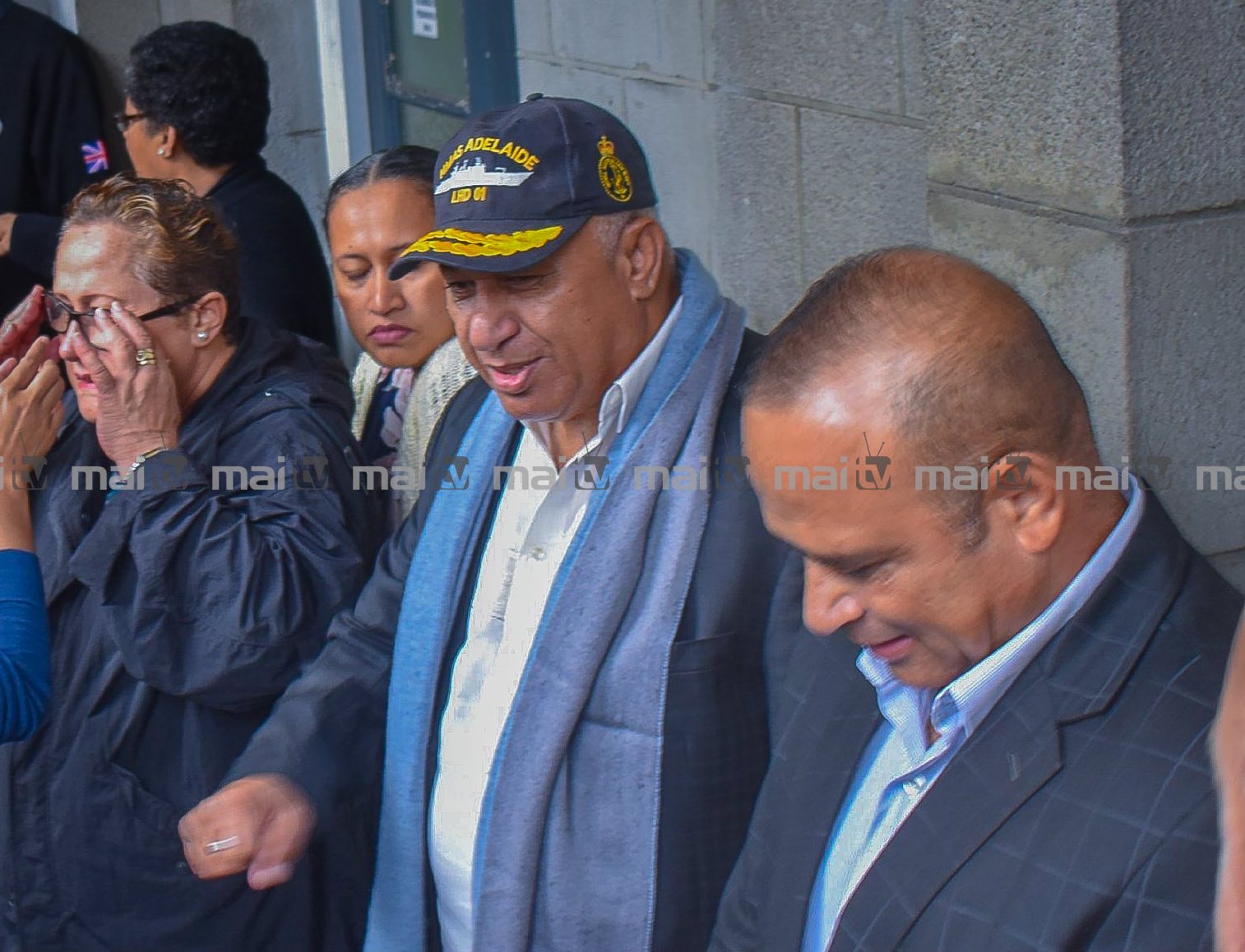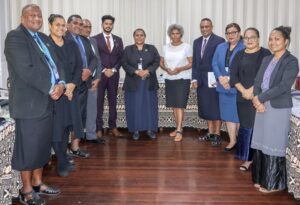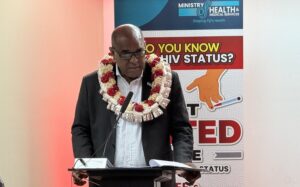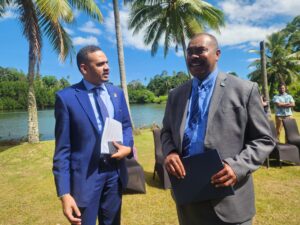Former Fiji PM Voreqe Bainimarama and suspended police commissioner Sitiveni Qiliho’s trial started in Suva, with the first prosecution witness testifying about alleged wrongdoing at the University of the South Pacific involving former staff.
These allegations were part of a complaint reported to the police by the university in July 2019, investigations into which the two defendants are accused of obstructing.
The trial before Magistrates Seini Puamau began yesterday and lasted for a little over four hours. Before the lunch break, prosecution witness USP Director of Assurance and Compliance Dulari Traill was asked to leave the courtroom twice. The first time was for around 20 minutes, and the second time lasted five minutes. This was to allow the counsels – David Toganivalu for the prosecution, and Devanesh Sharma for the defence – to discuss the relevance of statements made by Traill to the case at hand, with the latter contending that anything the witness said beyond a report that was compiled by current university Vice-Chancellor Professor Pal Ahluwalia titled “Past Management Decisions” was irrelevant.
However, Traill insisted Professor Ahluwalia’s report, highlighting numerous allegations related to bonus payouts, lucrative remuneration packages, promotions, and other irregularities outside the established university policies, formed part of the basis of the complaint. The complaint also included the findings of her team’s investigation into reports that were filed with them following the implementation of the university’s whistleblower policy.
When the whistleblower policy was endorsed in October 2017, Traill said staff members began coming forward with reports of fraudulent practices, leading to an investigation by Traill and her team. One such instance highlighted a bonus payment made in a “questionable manner,” which was reported by an HR officer. Traill claimed that senior management instructed her to stop investigating the matter and instead launch an investigation against the reporting officer, alleging a breach of confidentiality. The investigation conducted by her team concluded that both the reporting officer and the officer who processed the payment had the right access and were acting within their duties, negating any wrongdoing.
She then made the decision to report the alleged misconduct to the Fiji Independent Commission Against Corruption (FICAC) on 17 April 2019, sharing her concerns about interference and limited access to evidence. Following the report to FICAC, investigators conducted interviews and gathered statements as part of their investigation.
However, Traill testified that the investigation activities were abruptly halted. She also mentioned a letter from the FICAC addressed to the chairperson of the USP Council, which outlined FICAC’s investigation and their decision to cease their investigation due to the council’s intention to carry out an independent investigation into the report by VC Ahluwalia.
The decision to carry out an independent investigation was one of the resolutions approved by the USP Council during their meeting on 16-17 May in Port Vila, Vanuatu. BDO Auckland was then chosen to carry out the investigation into VC Ahluwalia’s report. After the BDO report was tabled, the focus shifted from investigations to disciplinary matters within Traill’s department. The report’s findings prompted internal processes and resulted in the termination of staff members involved in gross misconduct.
Prosecution counsel Toganivalu inquired about why the matter was reported to the Fiji Police Force, to which Traill explained that the decision to involve the police came after the FICAC investigators decided not to pursue further investigation. Union leaders subsequently lodged a complaint with the police. Traill, in the midst of providing support to the BDO investigators, informed the police that FICAC’s investigation had prematurely ended. The police approached her later to record her statement. She said supported the police in pursuing the investigation under their jurisdiction, by providing a statement detailing the university’s conducted investigation. She also facilitated interviews and directed the police to relevant sections and individuals for further inquiries, with the aim to recover lost funds and ensure that individuals who should not have received them were held accountable.
In cross-examining the witness, Sharma sought access to a copy of the complaint filed with FICAC. He argued that FICAC’s focus was solely on the allegations submitted by Professor Ahluwalia, ignoring other aspects brought forward by Traill.
During the trial, the defense also drew Traill’s attention to the BDO Report and its examination of the allegations raised by Professor Ahluwalia. They pointed out that the report thoroughly covered each allegation and provided conclusions. The defense also highlighted a passage of the report, which mentioned the difficulty in validating or dismissing Professor Ahluwalia’s case.
Bainimarama is charged with one count of attempting to pervert the course of justice, while Qiliho is charged with abuse of office. Both individuals have pleaded not guilty. The trial which continues today, is expected to run until Thursday this week and may extend into early August if necessary.









